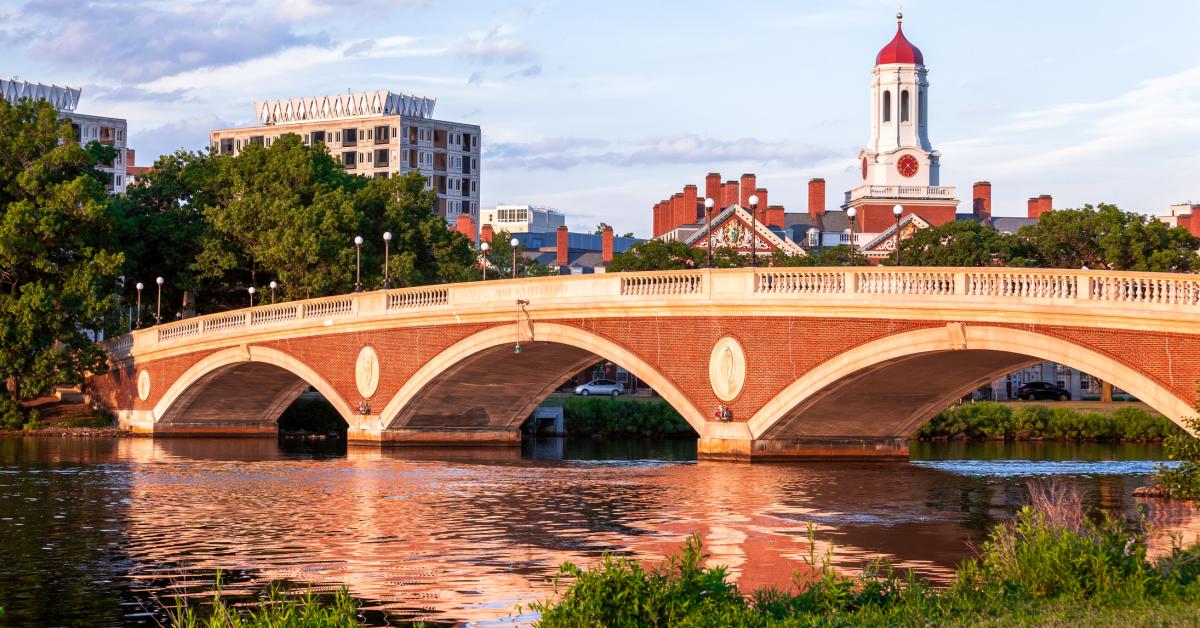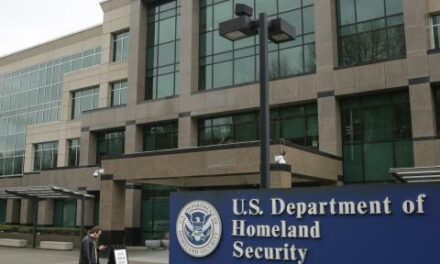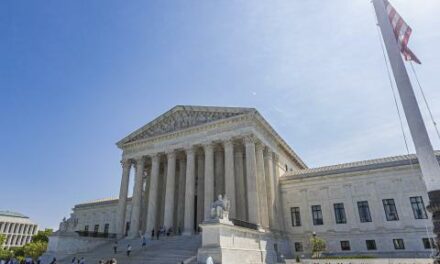We support our Publishers and Content Creators. You can view this story on their website by CLICKING HERE.

Harvard University temporarily suspended about 25 faculty from access to its Widener Library after they protested in a silent “study in” over the school’s disciplining a group of pro-Hamas student protesters.
“The faculty study-in protested the library’s decision to similarly suspend student protesters who conducted a pro-Palestine study-in last month,” the school’s student newspaper, The Harvard Crimson, reported.
The suspension lasts for two weeks.
“During the faculty study-in, professors silently read materials on free speech and dissent while placing signs related to free speech and University policy on the tables in front of them,” The Crimson stated. “As they did so, Securitas guards noted down their names and ID numbers.”
The Harvard Crimson also reported that the faculty wore black scarves during the protest. The texts they read were “on dissent, bureaucracy, and censorship,” such as Franz Kafka’s The Trial or George Orwell’s 1984, as well as the University-Wide Statement on Rights and Responsibilities, which the paper says “Harvard officials have used to justify imposing sanctions on activists who violate protest guidelines.”
“Study-ins are a silent form of protest,” Harvard University librarian Martha Whitehead said in a release.
“Some would argue that this is not disruptive,” and that it’s “no different from the free expression of an individual using a laptop with political stickers or wearing a t-shirt with a political message,” she said.
Others believe that “it is inherently disruptive and antithetical to the intent of a library reading room,” Whitehead said.
“We’re concerned that even when there is no noise, an assembly of people displaying signs changes a reading room from a place for individual learning and reflection to a forum for public statements,” Whitehead said.
“Librarians have a responsibility to protect library spaces for their intended uses,” Whitehead said. “While a reading room is intended for study, it is not intended to be used as a venue for a group action, quiet or otherwise, to capture people’s attention.”
The Center Square reached out to Whitehead for comment twice by email and received no response.
The Harvard Library told The Center Square that it does not “comment on individual matters related to library access or privileges,” and sent a link to Whitehead’s essay.
Foundation for Individual Rights and Expression vice president of campus advocacy Alex Morey told The Center Square that this situation at Harvard is one the group is “watching closely.”
“Silent protest is an important aspect of a healthy free speech culture in any democracy,” Morey said. “It’s particularly important in higher ed where we want max tolerance for debate and discussion. Harvard’s own high-level free speech policies say as much.”
“By definition, silent protest is typically non-disruptive, which means it can be a great way for students or faculty to engage in counterspeech,” Morey said.
“Like many other schools, Harvard has had a tough time threading the needle when it comes to punishing misconduct while protecting protest post-Oct. 7,” Morey said.
Morey also said that “Harvard seems to want to protect its library space as sacred, and that’s fair.”
“Many institutions bar planned protests indoors because they can disrupt the study environment,” Morey said. “One problem is that Harvard’s broad bar on silent protest is so vague that it could ensnare students or faculty who just happen to be wearing political t-shirts, or have laptop stickers advocating for a cause.”
“Policies that don’t tell students or faculty with precision what they can or cannot do have a very real chilling effect,” Morey said.
“This situation also reveals something curious about the institution’s priorities,” Morey said.
“There’s a universe of real concerns Harvard’s tackling right now on the censorship and protest front,” Morey said. “It seems strange that they’re drawing a hard line on this particular type of silent, symbolic expression.”
The Center Square reached out to Harvard spokesman Jonathan L. Swain twice by email for comment and received no response.

 Conservative
Conservative  Search
Search Trending
Trending Current News
Current News 





